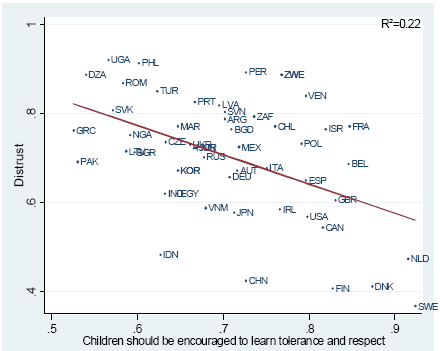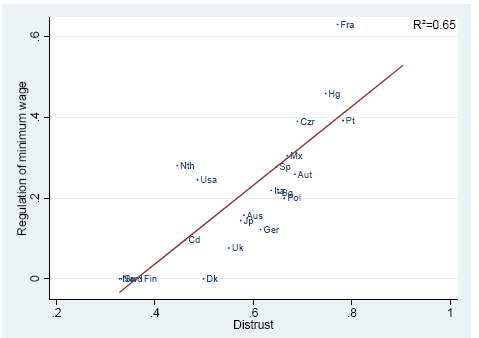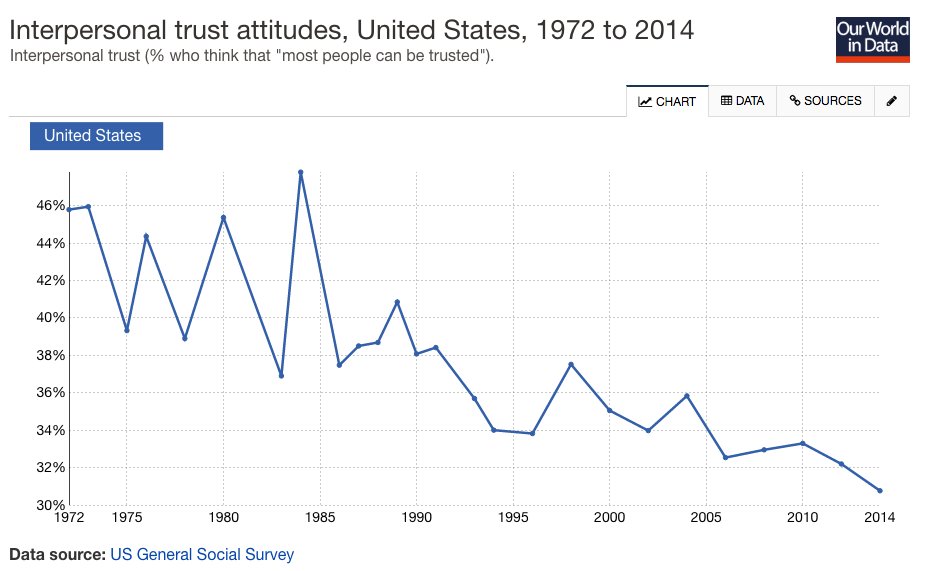Regulation and Distrust–The Ominous Update
Here’s a post I wrote in 2009 (no indent) that I will update today:
In an interesting paper, Aghion, Algan, Cahuc and Shleifer show that regulation is greater in societies where people do not trust one another. The graph below, for example, shows that societies with a greater level of distrust have stronger minimum wage laws. Note that the result is not that distrust in markets is associated with stronger minimum wages but that distrust in general is associated with greater regulation of all kinds. Distrust in government, for example, is positively correlated with regulation of business. Or to put it the other way, trust in government (as well as other institutions) is associated with less regulation.

 Aghion et al. argue that the causality flows both ways on the regulation-distrust nexus. Distrust makes people turn to government but in a society with a lot of distrust government is often corrupt and this makes people distrust even more. Crucially, when people distrust others they invest not in the highest return projects but in human and physical capital that is complementary to distrust–for example, they invest in human capital that helps them bond with their group/tribe/family rather than in human capital that helps them to bond with “outsiders” and they invest in physical capital that is more difficult to expropriate rather than in easier to expropriate capital, even though in both cases the latter investments may be the all-else-equal higher return investments. Such distrust traps are quite similar to Bryan Caplan’s idea traps.
Aghion et al. argue that the causality flows both ways on the regulation-distrust nexus. Distrust makes people turn to government but in a society with a lot of distrust government is often corrupt and this makes people distrust even more. Crucially, when people distrust others they invest not in the highest return projects but in human and physical capital that is complementary to distrust–for example, they invest in human capital that helps them bond with their group/tribe/family rather than in human capital that helps them to bond with “outsiders” and they invest in physical capital that is more difficult to expropriate rather than in easier to expropriate capital, even though in both cases the latter investments may be the all-else-equal higher return investments. Such distrust traps are quite similar to Bryan Caplan’s idea traps.
Thus, societies with a lot of distrust generate regulation and corruption and citizens who don’t have the skills or preferences to break out of the distrust equilibrium. Consider, for example, that in societies with a lot of distrust parents are less likely to consider it important to teach their children about tolerance and respect for others.
The update should be obvious. More and more this appears to be describing the United States. More distrust in government, more regulation, lower growth and more people who are so distrustful of one another that they can’t cooperate to break out of the bad equilibrium. Here drawn from Our World in Data is interpersonal trust in the United States.
